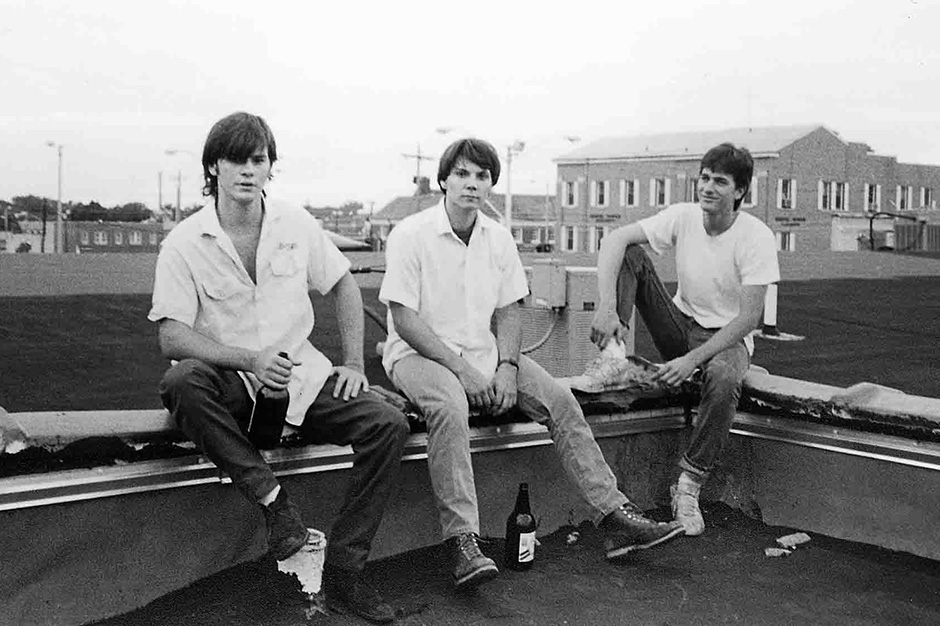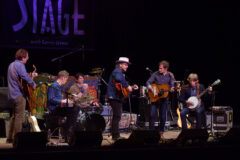Release Date: January 28, 2014
Label: Sony
Between Mumford & Sons, the Lumineers, and the Avett Brothers, twang-y, revivalist roots rock might seem like a new thing, but all that’s really new is its popularity. A quarter-century ago, the underground teemed with earnest young folks harkening back to bucolic olden times, and nobody was more earnest — or influential, or doomed — than Uncle Tupelo. Now comes a double-disc reissue of the trio’s 1990 debut, No Depression, whose title alone came to define a magazine, an entire genre, and untold hordes of like-minded bands across the planet.
Actually, one of this reissue’s stranger revelations is how close these guys came to winding up as just another also-ran R.E.M. That’s the take-away from the bulk of the second-disc rarities, especially the 1989 demos recorded under the working title Not Forever, Just for Now (an epigrammatic couplet from “Whiskey Bottle”). Produced by Matt Allison with more of a jangle-pop vibe, these tracks present a parallel-universe Uncle Tupelo navigating a musical landscape where all roads lead to Athens, Georgia.
Finding their way back to their native Midwestern environs required the Illinois band to journey up to Boston and record at the same Fort Apache South studio favored by Pixies and Dinosaur Jr. With the grunge-wise team of Sean Slade and Paul Kolderie behind the boards — swapping out Not Forever‘s harmonicas for sweeping pedal steel — No Depression somehow bridged the gap between Hüsker Dü and Ramblin’ Jack Elliott. It was a Carter Family sing-along reimagined as a sharp elbow from a teeming mosh pit — all recorded for a whopping $3,500.
A cool mythology, sure, but it still doesn’t explain how large this album looms in the cosmos of outsider Americana. At first glance, Uncle Tupelo weren’t doing anything radically different from Green on Red, X, Rank & File, the Blasters, Jason and the Scorchers, and a dozen other outfits that beat Jay Farrar, Jeff Tweedy, and drummer Mike Heidorn to the country-punk promised land by years. But great as many of those forebears were, they all sounded studiedly self-conscious, to varying degrees; by contrast, Tweedy and especially Farrar could somehow pull off a stoic fatalism that resonated on a wavelength similar to those “Old, Weird America” sides on Harry Smith’s Anthology of American Folk Music.
The circle of life being what it is, many still questioned Uncle Tupelo’s bona fides. Richard Byrne’s liner notes here recount a confrontation outside CBGB at the 1990 New Music Seminar, in which Farrar had it out with Gerard Cosloy over who knew more Woody Guthrie songs (reprising an argument that Bob Dylan no doubt had a time or two during his Greenwich Village folkie days — positively 4th Street, baby). But No Depression radiates a sepia-toned authenticity the trio’s peers could never manage: They make the line from the Carter Family to Gram Parsons seem more direct than ever, and not just by covering both “No Depression in Heaven” and “Sin City.”
With 35 tracks between the two discs, this reissue offers abundant alternate takes and rarities going back as far as 1987. And while the extras will delight completists — especially the seven tracks retrieved from Tupelo’s late-’80s cassette releases, the fidelity is just as primitive as you’d expect — no one beyond the hardest of the hardcore needs to hear them more than once.
No, the money shot is still the original 13-track album, which stridently argues (and proves) the thesis that Uncle Tupelo were the Velvet Underground of ’90s alt-country. “Before I Break” and “That Year,” which render the Minutemen’s jagged, stop-start dynamics in folksier tones, forged a runaway-train rhythmic template that the Old 97’s follow to this day. And the dramatic pathos of “Whiskey Bottle” and “I Got Drunk” remains a perfect distillation of at least half the songs that Ryan Adams wrote during his ’90s Whiskeytown days.
Of course, it’s impossible to revisit No Depression without pondering what became of Uncle Tupelo’s dual frontmen. Farrar’s songs tend to be hyper-specific portrayals of downcast losers in search of “Life Worth Livin'” (“That’s why we drink ourselves to sleep”); with Son Volt, he’s spent the last 20 years writing majestically dour songs that could’ve fit his old band just as snugly. Tweedy was very much in his bandmate’s shadow at first, his contributions more open-ended and abstract; that trend only continued, of course, with Wilco, which slowly evolved into America’s nominally roots-oriented equivalent to Radiohead. They were a dynamite team back then, though, somehow sounding both impossibly innocent and grizzled far beyond their years. It couldn’t last — and yet, it has. Not now, just forever.





